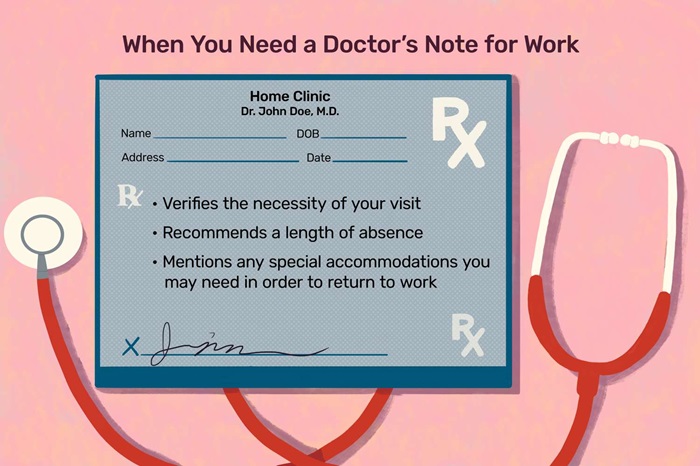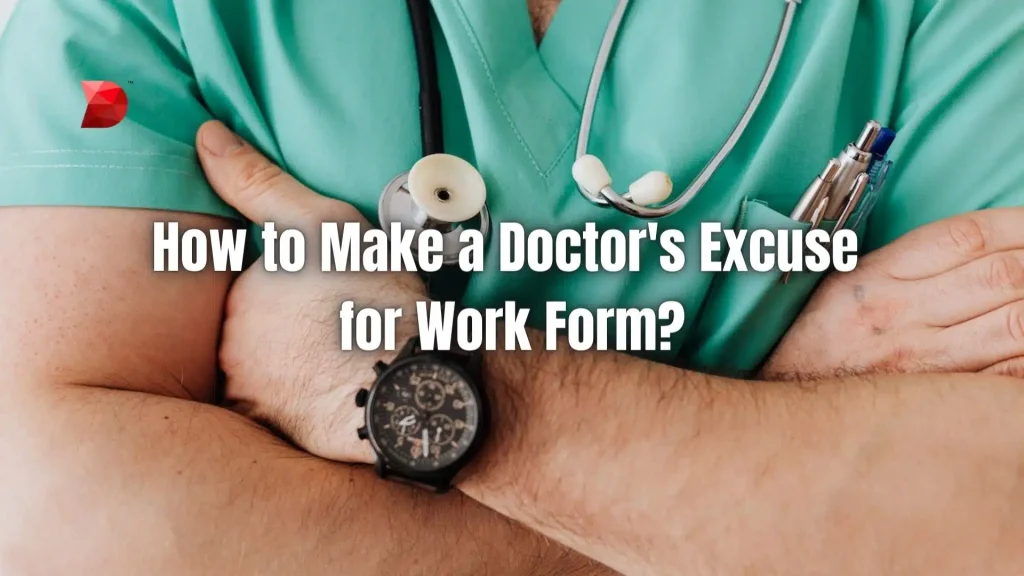In today’s fast-paced world, balancing work and personal life can be challenging. Sometimes, unforeseen circumstances arise that require us to take time off from work. Whether it’s due to illness, medical appointments, or personal emergencies, having a valid excuse is essential to maintain professionalism and adhere to company policies. One of the most common ways to justify your absence from work is by providing a doctor’s excuse. In this comprehensive guide, we’ll delve into everything you need to know about doctors’ excuses for work.
What is a Doctor’s Excuse?
A doctor’s excuse, also known as a medical certificate or physician’s note, is a formal document issued by a healthcare provider to verify a patient’s medical condition and justify their absence from work or school. It serves as proof that the individual was unable to fulfill their responsibilities due to legitimate health reasons.
Why Do You Need a Doctor’s Excuse for Work?

Having a doctor’s excuse for work is crucial for several reasons:
- Policy Compliance: Many companies have strict policies regarding absenteeism and require employees to provide a valid excuse for any missed days.
- Legal Protection: A doctor’s excuse can protect both the employee and the employer legally by documenting the medical necessity for the absence.
- Maintaining Professionalism: Providing a legitimate excuse demonstrates professionalism and accountability to employers and colleagues.
- Avoiding Disciplinary Action: Without a valid excuse, employees may face disciplinary action or even termination for excessive absenteeism.
Types of Doctor’s Excuses:
- Sick Leave: The most common type of doctor’s excuse is for sick leave, which verifies that the individual was medically unfit to work due to illness or injury.
- Medical Appointments: Some employers require a doctor’s excuse for medical appointments that cannot be scheduled outside of working hours.
- Family Emergencies: In cases of family emergencies or caregiving responsibilities, a doctor’s excuse may be required to justify the absence.
- Extended Leave: For prolonged illnesses or medical conditions, a doctor’s excuse may be necessary to support requests for extended leave or disability accommodations.
How to Obtain a Doctor’s Excuse:
- Schedule an Appointment: Contact your healthcare provider to schedule an appointment for a consultation.
- Provide Details: During the appointment, explain your need for a doctor’s excuse and provide any relevant details about your condition or circumstances.
- Medical Evaluation: The healthcare provider will conduct a medical evaluation to assess your condition and determine if a doctor’s excuse is warranted.
- Documentation: If the healthcare provider deems it necessary, they will provide you with a formal doctor’s excuse, which may include details such as the date of the visit, diagnosis, and recommended duration of absence.
- Follow Employer Procedures: Submit the doctor’s excuse to your employer following their specific procedures for reporting absences.
Tips for Using a Doctor’s Excuse Effectively:
- Be Honest: Always provide accurate information to your healthcare provider when seeking a doctor’s excuse.
- Timeliness: Obtain the doctor’s excuse as soon as possible to ensure timely submission to your employer.
- Communication: Keep your employer informed about your absence and provide updates as needed.
- Confidentiality: Respect the confidentiality of your medical information and only share the doctor’s excuse with authorized individuals.
- Follow-Up: If your absence extends beyond the duration specified in the doctor’s excuse, follow up with your healthcare provider for any necessary extensions or updates.
Common Misconceptions About Doctor’s Excuses:
- Fake Excuses: Using a fake or forged doctor’s excuse is unethical and can have serious consequences, including termination of employment.
- Unnecessary Visits: Some employees may seek unnecessary medical visits solely to obtain a doctor’s excuse, which can strain healthcare resources and compromise the integrity of the healthcare system.
- Misuse of Excuses: Employers may be suspicious of repeated or frequent absences with doctor’s excuses and may investigate further if they suspect misuse or abuse of the system.
A doctor’s excuse for work is a valuable tool for employees needing time off due to medical reasons. By understanding the importance of a legitimate excuse and following the proper procedures for obtaining and using it, employees can maintain professionalism, adhere to company policies, and protect their rights in the workplace. Remember, honesty and integrity are paramount when dealing with matters of health and employment.


